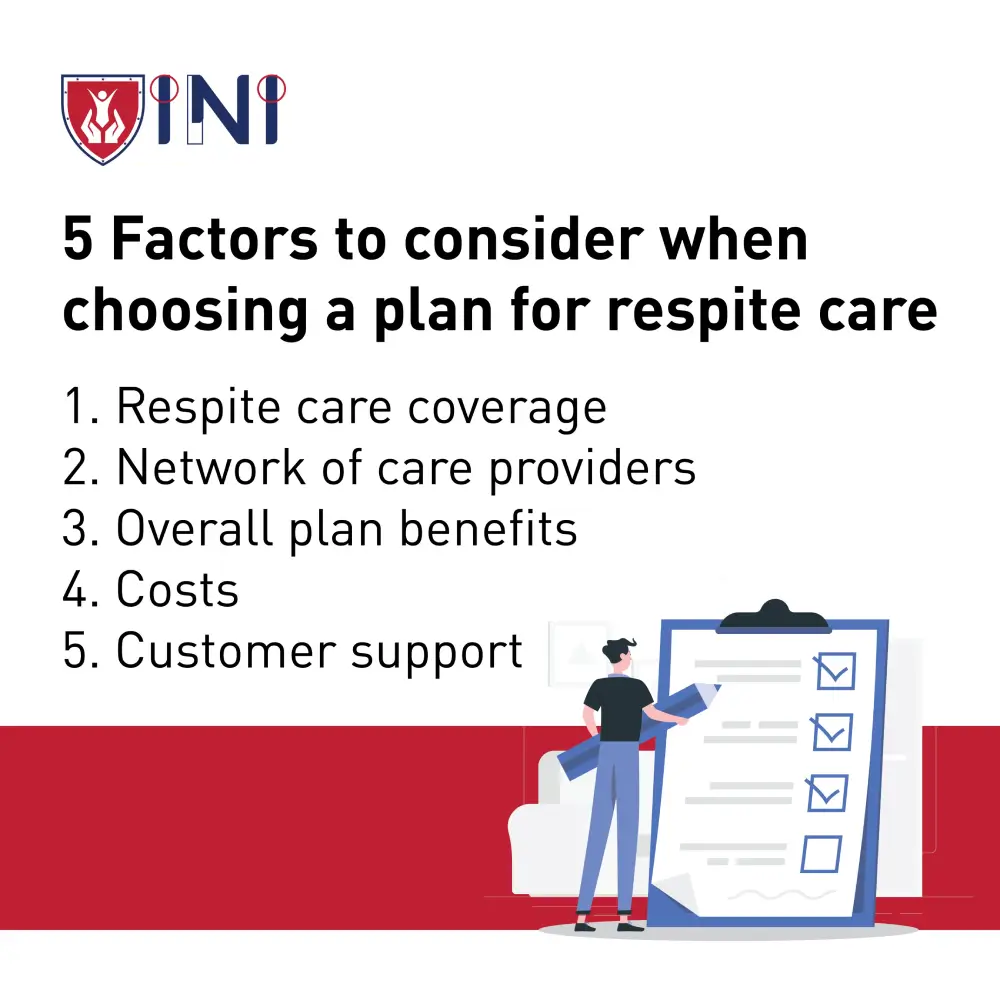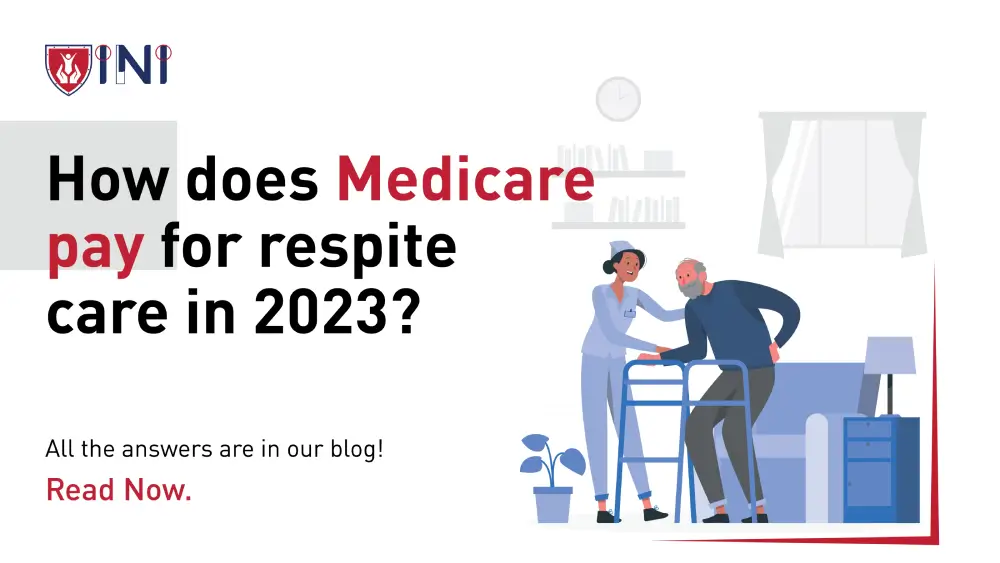How does Medicare pay for respite care in 2023?
Caring for your loved ones is a blessing and can be incredibly rewarding. However, it also comes with its own set of challenges. The role of a caregiver is ultimately difficult and demanding as a caregiver is responsible for taking care of their loved ones 24/7, every single day.
This concept leaves little to no time for any type of self-care for the caregiver. This is where respite care comes into play. This provides the caregiver with an opportunity to sit back and take time for themselves and attend to their own well-being. They get to utilize this opportunity to recharge and take care of their physical and mental needs.
“Caregiving is a constant learning experience.”- Vivian Frazier
In this blog, we will explain just that! We will help you understand how Medicare plays a crucial role in covering these needs.
Come, let’s dive in!
What is Respite care and why does it matter?
Respite care refers to the temporary care of an individual who is dependent on another person to give their primary caregiver a break. The break can range from a few hours to several days allowing the caregivers a good amount of time to take care of themselves. Let’s now discuss why respite care matters the most.
6 factors highlighting why Medicare respite care matters
-
The responsibilities of managing medical appointments, medication management, personal care, and emotional support are taken care of by the caregiver. This commitment can come at a cost to their well-being.
-
With respite care in place, the caregiver can take breaks and prevent burnout from constant caregiving responsibilities.
-
With a well-rested time, the caregivers can enhance their quality care and carry out their responsibilities in a less stressful manner. This leads to better overall outcomes for the care recipients.
-
It also helps support family dynamics as the caregivers can maintain a healthy balance between caregiving responsibilities and spending quality time, ultimately strengthening family relationships.
-
Respite care ensures offering care continuously by trained professionals during the respite period to ensure care recipients receive continuous care, support, and attention.
-
It helps promote self-care in the first place as caregivers often neglect taking care of themselves prioritizing their loved ones. This practice helps them adopt self-care and lead a healthy life ensuring the long-term well-being of the caregivers.
The role of Medicare Respite Care
Medicare is a federal program offered to individuals aged 65 or older and also provides healthcare benefits for certain younger individuals with disabilities and people with end-stage renal disease.
The program consists of different parts that cater to specific healthcare needs. However, the ultimate goal of a Medicare program is to ensure that individuals have access to quality medical services to maintain their health and well-being.
Who can benefit from Medicare Coverage for respite care?
Under Medicare Part A, individuals who receive Hospice care can get access to respite care services. Here’s what you can expect:
-
If the primary caregiver needs a break to rest, the care recipient is allowed to stay temporarily in a Medicare-approved facility.
-
This facility could be a hospice inpatient facility, a hospital, or a nursing home.
-
During this period of respite care, the recipient will continuously receive all the necessary care while the primary caregiver is off on a break.
-
It is important to understand that respite care under Part A includes a 5% coinsurance payment.
-
The primary caregiver is responsible for giving a portion of respite care costs while Medicare covers the rest.
-
This is a modest system where the coinsurance is used as a small price to pay for the invaluable opportunity to rest and recharge.
Medicare Advantage Plans 2023
Medicare Advantage Plans are offered by private insurance companies approved by Medicare also known as Part C. They provide supplementary benefits apart from regular ones as an alternative way to receive extra Medicare benefits. What sets Medicare Advantage plans apart from others is their ability to offer beneficiaries a one-stop solution.
They get to access hospital and medical services in one plan offering a streamlined approach and a simplified healthcare journey.
In 2023, several changes and updates have been launched and introduced to Medicare Advantage plans to cater to the changing healthcare needs of individuals.
Did you know?
Medicare Part A covers 95% of the cost of respite care stays in approved long-term care facilities for up to 5 days for individuals deemed eligible for hospice care.
You’re typically required to pay the remaining 5% of the cost!
Coverage of Medicare respite care in Medicare Advantage Plans 2023
As discussed earlier, one of the noteworthy aspects of Medicare Advantage plans is their flexibility in offering additional benefits beyond the regular package in Medicare. While the type of coverage can vary between different plans and insurance providers, some of the Medicare Advantage plans include cohesive coverage for respite care services.
This could be a game changer as it relieves the caregivers who are looking for comprehensive coverage that extends to temporary relief. When researching Medicare Advantage plans that offer respite care coverage, it is important to carefully review the terms and conditions of each plan.
Some plans might have specific eligibility requirements or limitations on the duration of the respite care coverage. We recommend that you engage with a trusted insurance representative to get a clear picture of what is covered and ways to access the benefits. In the next section, we will help you choose the ideal Medicare Advantage plan for respite care.
5 Factors to consider when choosing a Medicare Advantage plan for respite care

As caregivers are on the lookout for the right Medicare Advantage plan, there are several factors that come into play when selecting a suitable plan. It is crucial to compare plans based on their respite care coverage as well as other benefits and limitations. We want you to consider the following:
-
Respite care coverage
Evaluate the extent of respite care coverage, including the type of facilities covered and any associated costs.
-
Network of care providers
Make sure that your plan’s network includes reputable, convenient, and easy-to-access facilities that offer respite care services.
-
Overall plan benefits
Consider the broader benefits that are offered in your plan, such as prescription drug coverage, preventive services, and other healthcare needs.
-
Costs
It is essential to calculate and compare the premiums, deductibles, and out-of-pocket costs associated with every plan on your list. Don’t miss to do this, as the plans with a higher premium might offer a more comprehensive coverage.
-
Customer support
Look for plans and providers who offer timely and responsive customer support services and can assist you with queries related to respite care coverage and other benefits.
After a thorough examination of these factors, caregivers can make the right and informed decisions that align with their specific needs and preferences.
What is the application process like?
Applying for respite care services under Medicare or a Medicare Advantage plan involves several steps.
-
Primarily the caregivers need to confirm if they’re eligible for respite care services.
-
This usually involves ensuring that the care recipient is receiving Hospice care under Medicare Part A or that their chosen Medicare Advantage plan offers respite care coverage.
-
After successful completion of their eligibility, the caregivers are required to coordinate with the chosen facility and arrange a temporary stay for the care recipient.
-
This usually involves ensuring that the care recipient is receiving Hospice care under Medicare Part A or that their chosen Medicare Advantage plan offers respite care coverage.
-
During this process, the caregivers communicate with both the Hospice/facility staff and their chosen insurance provider to ensure a smooth transition and dedicated care for the recipient’s well-being.
4 Foolproof Alternative Options for Respite Care Funding
While Medicare and Medicare Advantage plans offer comprehensive respite care coverage, caregivers need to be aware of other alternative sources to fund their respite care.
-
Some states offer Medicare programs that can help cover the cost of respite care for eligible individuals.
-
Additionally, veterans who are enrolled in VA health care are eligible for respite care if they meet the clinical criteria and if the service is available in their location.
-
Your community might offer free informal respite care or discounted hourly respite care for seniors through local organizations such as worship places or elder-focused non-profit organizations.
-
In some cases you can also get private pay home care where you pay for an in-home caregiver to claim respite care on your own.
To sum up,
Respite care emerges as a lifeline that not just empowers but encourages caregivers to continue their noble roles without sacrificing their own well-being. Medicare’s provisions for respite care offer peace of mind and diligently acknowledge the tireless dedication of caregivers. It promotes the concept of balanced living where both caregivers and care recipients thrive.
With the help of Medicare and Medicare Advantage plans, caregivers get to access essential resources that enable them to carry out their roles with renewed energy and compassion. We hope this blog sheds light of hope in understanding Medicare’s role in funding respite care services to care for your loved ones. We encourage you to do detailed research before finalizing a plan.
Discover other Medicare benefits here
Did you find this article helpful? Share it!







